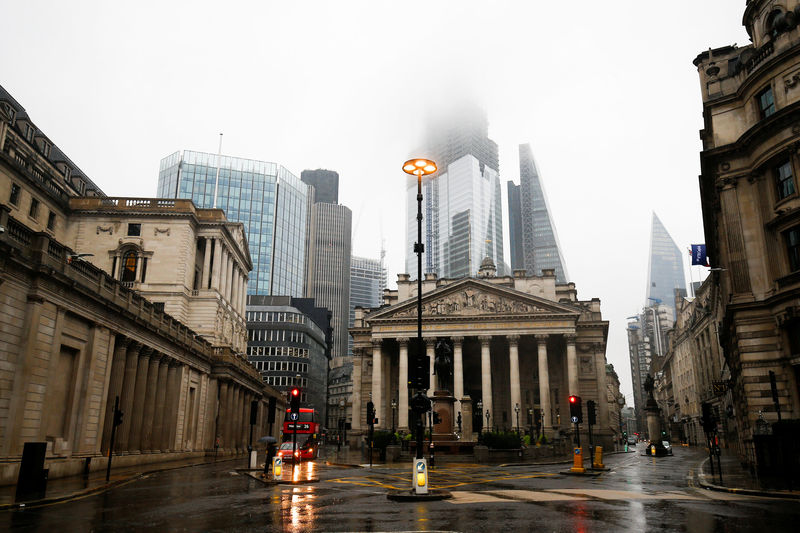By Geoffrey Smith
Investing.com -- The Bank of England raised its key interest rate by another 25 basis points on Thursday to a new 15-year high of 4.25%, its latest step in a struggle to tame double-digit inflation in the U.K.
Seven members of the nine-strong Monetary Policy Committee voted for the hike, with only two voting to keep the Bank rate at 4.0%. That's marginally more clear-cut than the 6-3 split that economists had predicted beforehand.
The Bank also warned that further rate increases could be necessary, even though it expects inflation to fall "sharply" in the second half of the year.
"If there were to be evidence of more persistent pressures, then further tightening in monetary policy would be required," the Bank said with a nod to tight labor market conditions.
The pound rose 0.5% against the dollar on the back of the news, while the benchmark FTSE 100 and FTSE Mid-Cap 250 indices weakened.
The decision comes only a day after the Office for National Statistics said that inflation rose to 10.4% in February, as record food prices and robust wage growth more than offset the gradual unwinding of last year's energy price spike.
Governor Andrew Bailey had signaled after the last 50 basis point hike in February that the Bank might not tighten policy any further, and the Bank again tried to look through the latest upside surprise in inflation, saying that "it remains likely to fall sharply over the rest of the year."
At the same time, though, it revised up its expectations for the U.K. economy. The Bank sees growth of 0.4% in the second quarter now, having forecast a modest decline in its February assessment. That's mainly due to fresh fiscal support measures unveiled in the government's budget, a still-strong labor market, and the ongoing unwinding of the energy price spike.
The move means that U.K. interest rates have risen by 4.15 percent since the Bank started tightening monetary policy in November 2021. However, the Bank rate remains more than 6 percentage points below the current CPI, ensuring that savings and debts are eroded by inflation.
The Bank of England was the third central bank in Europe to raise interest rates on Thursday, after a 50 basis point hike from the Swiss National Bank and a 25 basis point hike in Norway. They come a day after the U.S. Federal Reserve raised the target range for Fed Funds by 25 basis points to 4.75%-5.0%.
Frederik Ducrozet, an economist with Pictet Asset Management, said via Twitter that the move seemed a "dovish hike", given its underlying assumption of falling inflation. He contrasted it with the markedly more hawkish 50 basis point hike announced earlier Thursday by the Swiss National Bank.
